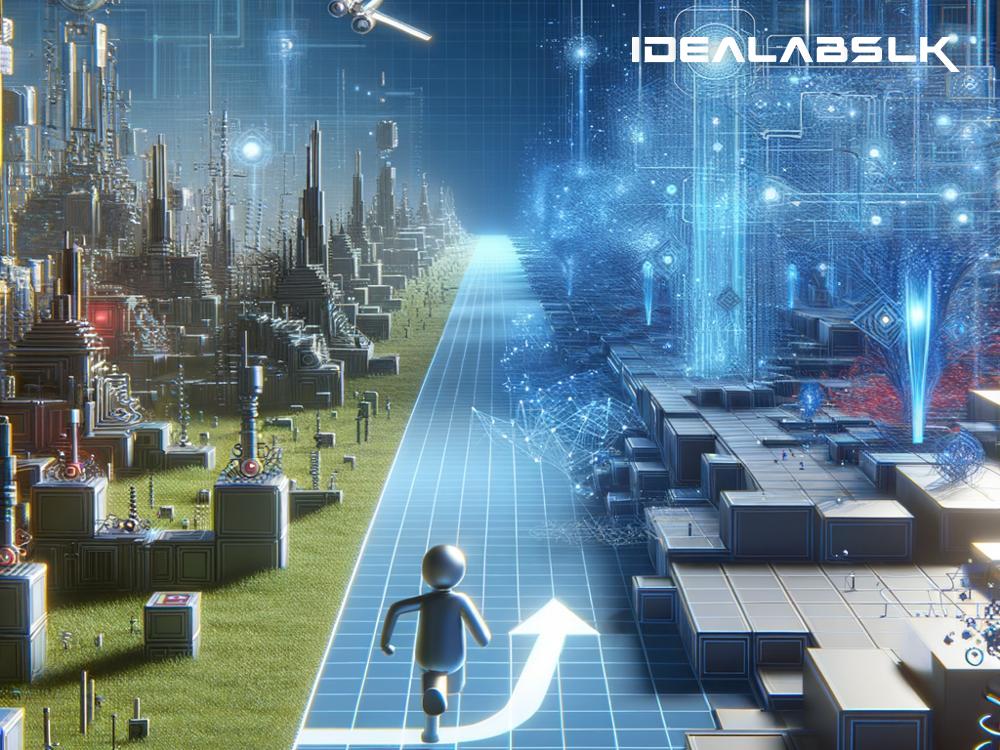AI and Dynamic Level Design: Transforming Game Worlds as You Progress
Welcome to 2024, where the line between game worlds and reality blurs more with each passing day. Thanks to advancements in artificial intelligence (AI), the way video games are designed is undergoing a revolutionary change. One of the most exciting developments? Dynamic level design. This innovative approach is set to change the landscape of gaming by making the virtual worlds we explore adapt in real-time, based on how we play the game. Let's dive into what this means and how it's going to amp up your gaming experience.
What Is Dynamic Level Design?
At its core, dynamic level design is all about creating game environments that react and evolve according to your actions and progress. Unlike traditional game design, where levels are static and remain the same no matter how many times you play, dynamic levels shift and change. This means the world you explore today might look different tomorrow, depending on what you did in the game.
The Role of AI
Artificial intelligence is the powerhouse behind this groundbreaking shift. Game developers are leveraging AI to analyze your playing style, preferences, and progression in real-time. The AI then uses this information to reshape the game environment, creating a tailor-made experience that's unique for every player.
For instance, if you're someone who loves exploring every nook and cranny of the game world, the AI may generate new, hidden areas for you to discover. Or, if you prefer high-stakes combat, the game might adjust to present more challenging enemies or scenarios. The possibilities are endless, and it all comes down to how you play.
How Game Worlds Will Change
Imagine stepping into a game world that remembers your victories and failures, adapting its landscape to provide a continuous challenge and fresh experiences. Here's how dynamic level design is setting the stage for this future:
-
Ever-Changing Environments: Perhaps the most striking impact will be the fluidity of game environments. Instead of memorizing level layouts, players will need to stay alert and adaptable, making each play session uniquely challenging and exciting.
-
Personalized Gameplay: Since the AI tailors the game based on individual play styles, your experience could be vastly different from that of your friend. This personalization adds an extra layer of intrigue and replayability.
-
Emotionally Engaging Narratives: With AI monitoring your progress and reactions, game narratives can also become more dynamic. The story might unfold in a certain way if you show bravery in certain situations or adapt if you fail too many times, ensuring the storyline remains engaging.
-
Enhanced Learning and Difficulty Adjustment: For newcomers or those less adept at certain game genres, AI can gently increase the difficulty as you improve, ensuring you're always being challenged without feeling overwhelmed.
Challenges and Considerations
While the prospects are thrilling, dynamic level design is not without its challenges. Balancing the AI's adaptability with ensuring a coherent and satisfying game narrative is complex. Developers must also consider how changes affect the overall game progression and ensure that personalization doesn't lead to isolation among players, especially in multiplayer scenarios.
Moreover, there's the technical aspect of creating AI sophisticated enough to handle these tasks while keeping the game running smoothly across various platforms and devices.
Looking Ahead
As we march further into 2024 and beyond, the intersection of AI and dynamic level design promises to redefine our gaming experiences. The continuous evolution of game worlds in response to our actions opens up a realm of possibilities previously confined to sci-fi dreams.
However, as we marvel at these advances, it's also crucial to stay mindful of the challenges and work towards solutions that enhance the pleasure and depth of our virtual adventures without sacrificing the essence of what makes games enjoyable.
In summary, the fusion of AI and dynamic level design is more than just a trend. It's a glimpse into a future where games offer not just an escape but a deeply personal journey that evolves with us. As developers refine these technologies, one thing is clear: the games of tomorrow will be as dynamic and unpredictable as the players themselves.

